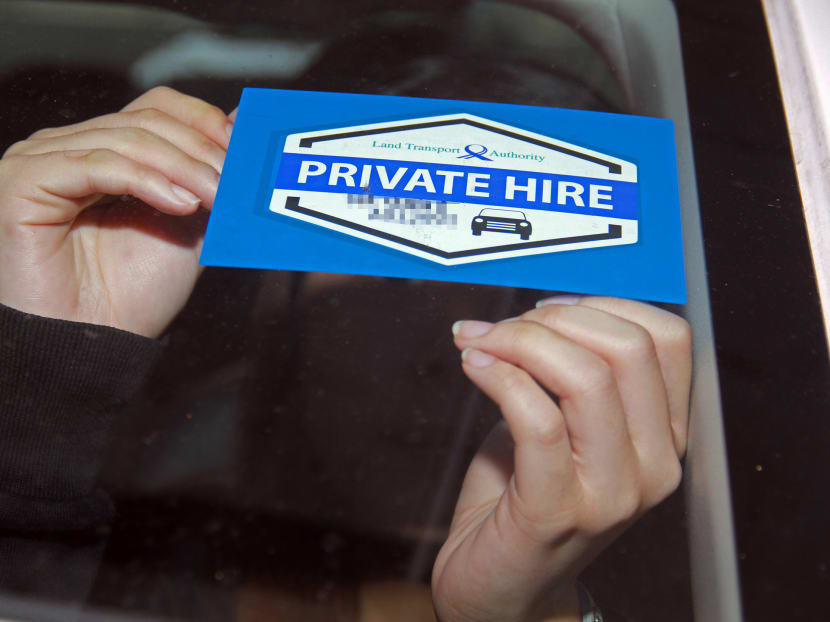Govt to review regulations for taxi and private-hire car sectors in bid to prevent monopoly
SINGAPORE — As the lines blur between the taxi and private-hire car industries, the Government will review regulations governing the point-to-point transport sector so that no single player will dominate, Second Transport Minister Ng Chee Meng said on Wednesday (March 7).

Second Transport Minister Ng Chee Meng said the review includes how to license ride-hailing operators and structure the industry. TODAY FILE PHOTO
SINGAPORE — As the lines blur between the taxi and private-hire car industries, the Government will review regulations governing the point-to-point transport sector so that no single player will dominate, Second Transport Minister Ng Chee Meng said on Wednesday (March 7).
The review includes how to license ride-hailing operators and structure the industry. The authorities will review the regulations “given how fast the industry is changing”, said Mr Ng, noting the limitations of the existing regulatory regime.
“Licensing will give the Government a broader range of regulatory levers to ensure that the rapidly evolving private-hire car industry grows in a manner which meets the needs of commuters, drivers and our broader transport policy,” he added.
The minister’s comments came less than a month after news emerged that American ride-hailing giant Uber was preparing to sell its business in South-east Asia to Singapore-based rival Grab. In the past year, Grab and Uber have also separately joined hands with taxi companies here, combining private-hire cars and taxis to form new booking services.
Currently, the regime focuses mainly on protecting commuters’ safety and interests by licensing drivers and cars, Mr Ng noted. In exceptional cases, the Land Transport Authority can issue a suspension order, forbidding drivers from providing services for the ride-hailing companies. “But this is a very blunt tool, which impacts commuters and drivers,” said Mr Ng, who was speaking during the debate on the Transport Ministry’s budget in Parliament.
The minimal regulatory approach was taken several years ago, to avoid stifling innovation in what was then a sector just stirring to life.
But the industry has since grown, changing the face of point-to-point transport considerably. It was thus “imperative” that the Government has sufficient regulatory oversight of ride-hailing operators, which should bear “greater responsibility” for ensuring commuter safety, Mr Ng said.
As the regulator, the Government has to “act in good time” to ensure that the market stays open and contestable, even as the two industries consolidate, Mr Ng said. Allowing one player to rule the sector will be to the “detriment of commuters and drivers”.
Mr Ng was responding to a suggestion by Ang Mo Kio Group Representation Constituency (GRC) Member of Parliament (MP) Ang Hin Kee, who is also the executive adviser to the National Taxi Association and the National Private Hire Vehicles Association. Mr Ang urged the Government to review its regulatory approach for the industries.
Mr Ng noted the sheer size of the private-hire car industry meant that the actions of the ride-hailing firms affect a significant pool of drivers and commuters.
At the end of last year, there were about 47,000 registered private-hire cars and 23,140 taxis, based on official data. Going by estimates from a Public Transport Council survey last year, commuters made more than one million journeys on private-hire cars daily. The average daily ridership of taxis stood at 785,000 in the same year.
Less than a year after Grab launched its fixed-fare JustGrab service here last March with five taxi operators, Uber leapt into the fray in January with a similar booking service, UberFlash, which is a tie-up with Singapore’s largest taxi company ComfortDelGro.
Last week during the Budget debate, Jurong GRC MP Ang Wei Neng, who is also the chief executive of ComfortDelGro Taxi, spoke about the different regulatory standards governing taxi and ride-hailing operators, calling on the Government to level the playing field for all. Taxi companies have had no choice but to form alliances with Grab and Uber, forcing them into a “tight spot”, Mr Ang had told the House.
Last month, financial news network CNBC reported that Uber was preparing to sell its Southeast Asian business to Grab in exchange for a sizeable stake in the company. Nevertheless, Uber’s chief executive Dara Khosrowshahi later pledged to continue investing aggressively in the region, even though the company expects to lose money in the rapidly growing market.








